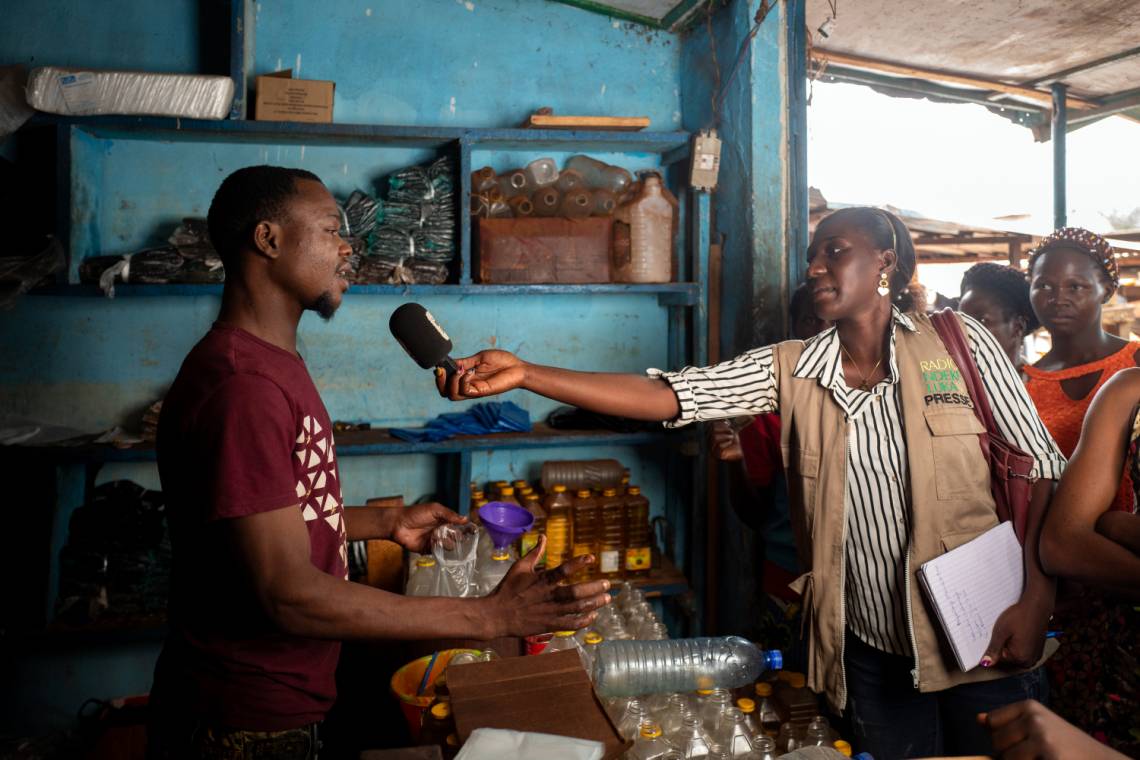The 19 journalists of the fact-checking unit created by Radio Ndeke Luka, the most listened-to media in the Central African Republic, benefited from the coaching of Olivier Poujade, a journalist from France Inter, who came to share his experience in the fight against disinformation.
The #StopAtènè program ("stop rumors" in Sango, the main language of CAR) continues to develop, after its launch in late 2020 by Fondation Hirondelle and Radio Ndeke Luka, in partnership with Central African bloggers. A program funded by the European Union's Instrument Countering Stability and Peace (ICSP). The fact-checking unit set up within this framework regularly decodes rumors, distorted information and "fake news". The stories produced are broadcast on RNL and its partner radio stations, as well as on its website, on social networks, and by other Central African online media.
The training given from October 15 to 26 by Olivier Poujade, a journalist and senior reporter at France Inter, the most listened-to public radio station in France, helped build the capacities of the 19 journalists, including 4 women, in the fact-checking unit created by RNL. This mission allowed to measure the efficiency of this group of journalists, its organization, its ability to detect and verify false information. During the ten days of training, Olivier Poujade combined a theoretical approach with practical exercises, such as writing workshops and the production of investigations. Some journalists discovered their investigative talents!
The dialogue with and between the participants also brought to light an important observation in the fight against false information: the main channel for spreading rumors in the Central African Republic is now clearly Whatsapp. Facebook seems to have tightened its moderation of certain suspicious accounts and groups. A reminder of good practices to adopt on social networks was therefore provided.
Finally, this training was an opportunity to raise a complex debate, which applies to all fact-checking cells: when should you start debunking fake news? By wanting to debunk a rumor that has had a limited circulation, don't we risk contributing to its diffusion? Proportionality, an essential rule of journalism for the treatment of news, must be sought with all the more rigor and precision when it comes to countering disinformation.
Find here the fact-checking articles of the "#StopAtènè" cell of Radio Ndeke Luka.
